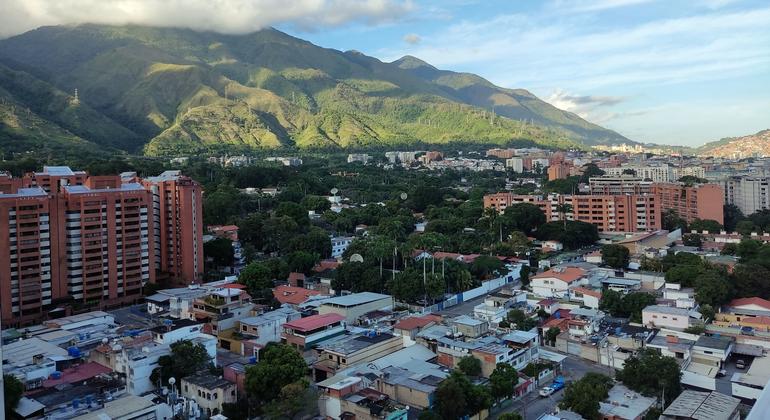
Regina de Dominicis, the agency’s regional director for Europe and Central Asia, made a plea for action after another small boat sank off the coast of Lampedusa in southern Italy on New Year’s Eve.
“Among the seven survivors was an eight-year-old child whose mother was also among the missing. The boat reportedly sank as it approached the shore. ”
The fatal incident follows another fatal accident off the island in early December, in which the sole survivor was an 11-year-old girl.
2,200 people died in the Mediterranean
“The number of dead and missing in the Mediterranean in 2024 now exceeds 2,200, with nearly 1,700 lives lost on the Central Mediterranean route alone,” Ms de Dominicis said.
“This includes hundreds of children, representing one in five people migrating through the Mediterranean, with the majority fleeing violent conflict and poverty.”
The United Nations children’s agency calls on all governments to use migration and asylum agreements to prioritize the protection of children, including ensuring safe and legal routes for protection and family reunification. .
The agreement also calls for establishing coordinated search and rescue operations, safe disembarkation, community-based reception, and access to asylum services.
“We also call for increased investment in essential services for children and their families arriving through dangerous migration routes, including psychosocial support, legal aid, health care and education,” she said. continued.
“Governments must address the root causes of migration, support the integration of families into host communities, and ensure children’s rights are protected at every stage of their journey.”
Days before the inauguration of Venezuelan President Nicolás Maduro, the head of an independent human rights commission has called on the country’s authorities to allow peaceful protests to take place “without fear of reprisals.”
The complaint by the Fact-Finding Mission on Venezuela, which will be reported to the Human Rights Council in Geneva, comes in the wake of the violent crackdown on demonstrators following last July’s presidential election, which saw Maduro return to power.
“We remind security forces responsible for maintaining public order to adhere to the strictest international standards regarding the use of force,” said Fact-Finding Mission Chair Marta Valinhas.
Fellow human rights expert Francisco Cox echoed her statement, warning that Venezuela’s “mechanisms of repression remain fully operational.”
Mr Cox said that in the five months to December last year, authorities had detained at least 56 opposition activists, 10 journalists and one human rights defender.
“Criminal liability”
He said: “Those who order arbitrary detention and the imposition of torture and other ill-treatment, and those who carry them out, are subject to individual criminal liability.”
According to the Venezuelan public prosecutor’s office, about 1,300 of the more than 2,500 people detained in the post-election security investigation have been released, but a fact-finding mission said these numbers cannot be substantiated.
According to the non-governmental organization Foro Penal, experts at the mission said that “1,849 people are still being detained for political reasons, without access to essential legal guarantees for food, health, and ongoing legal proceedings.” “We are facing multiple abuses and restrictions that affect access to.”
New Security Council members seated
Five elected members of the Security Council officially began their two-year terms on Thursday, with five others leaving the world’s top body for peace and security.
The next member states will be Denmark, Greece, Pakistan, Panama and Somalia, and were elected at the UN General Assembly in June last year.
The outgoing members are Ecuador, Japan, Malta, Mozambique and Switzerland. The board has 10 elected members, along with the five permanent members: China, France, Russia, the United Kingdom, and the United States.
Flags for the countries serving their terms in 2025 and 2026 were installed in a special ceremony outside the chamber.
Ambassador Amal Bendjama of Algeria, President of the Security Council in January, thanked the outgoing members and warmly welcomed the new arrivals, calling it an “incalculable privilege” to take on the task and He said it was a “huge responsibility.”
“The world is facing many challenges that threaten international peace and security. The situation in the Middle East is of great concern,” he said.
He called on all Council members to work tirelessly and effectively and “uphold the values of multilateralism.”
UN Under-Secretary-General for Political and Peacebuilding Affairs Khalid Kiari said membership in the Council was a “solemn responsibility” and reflected the broader membership and confidence in the Council from the organization. Ta.
He praised the increasingly prominent role of elected members in reshaping how councils operate.


